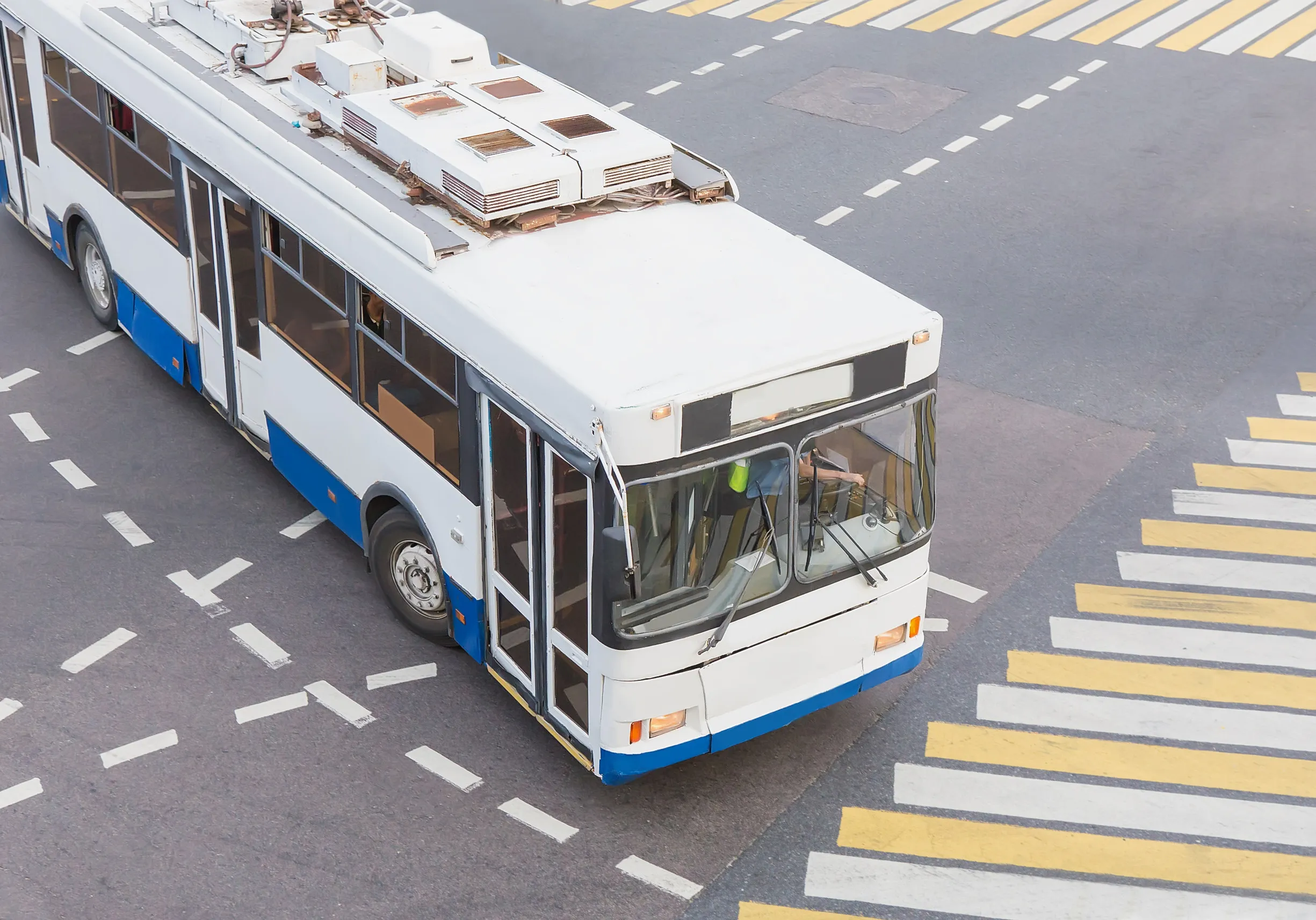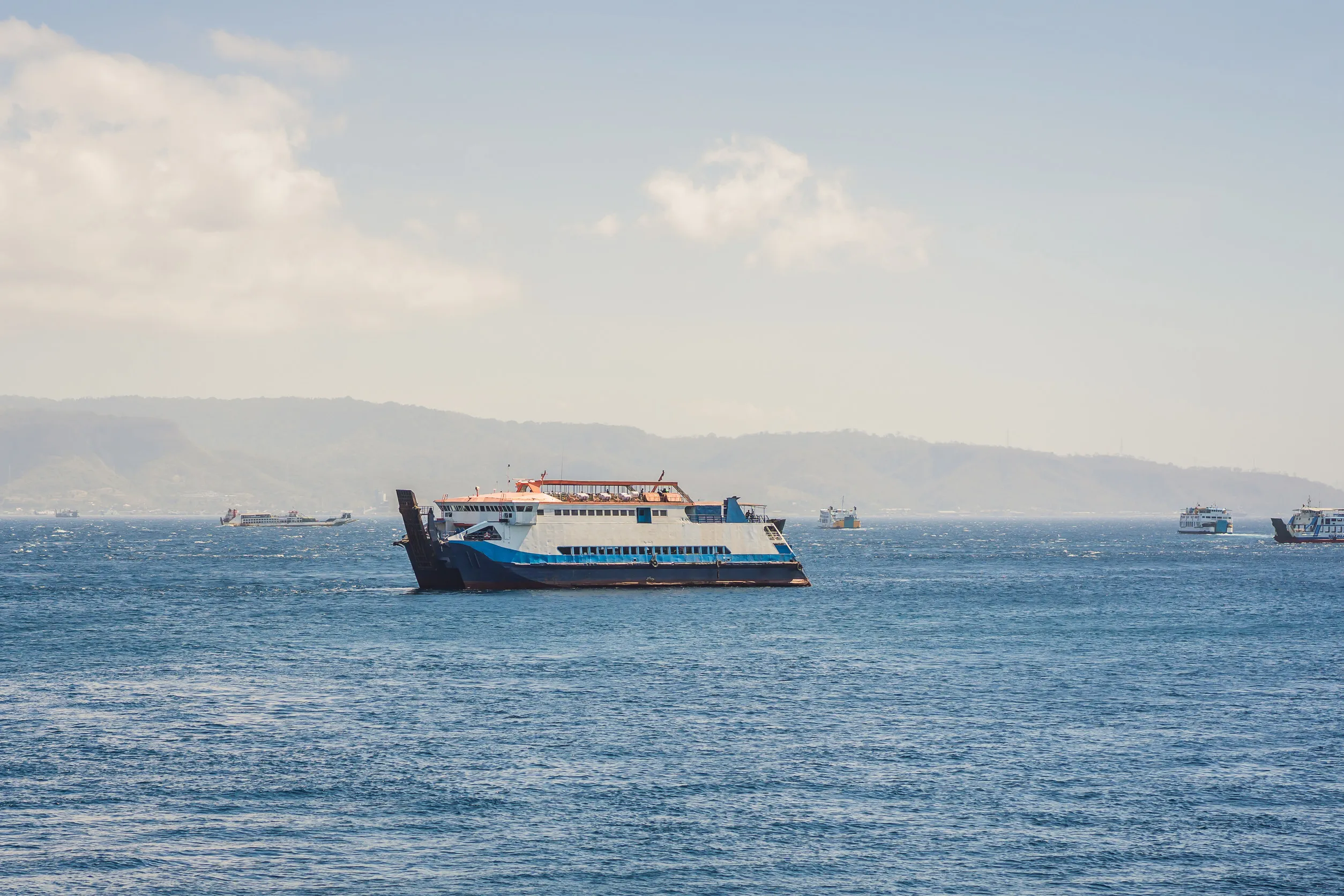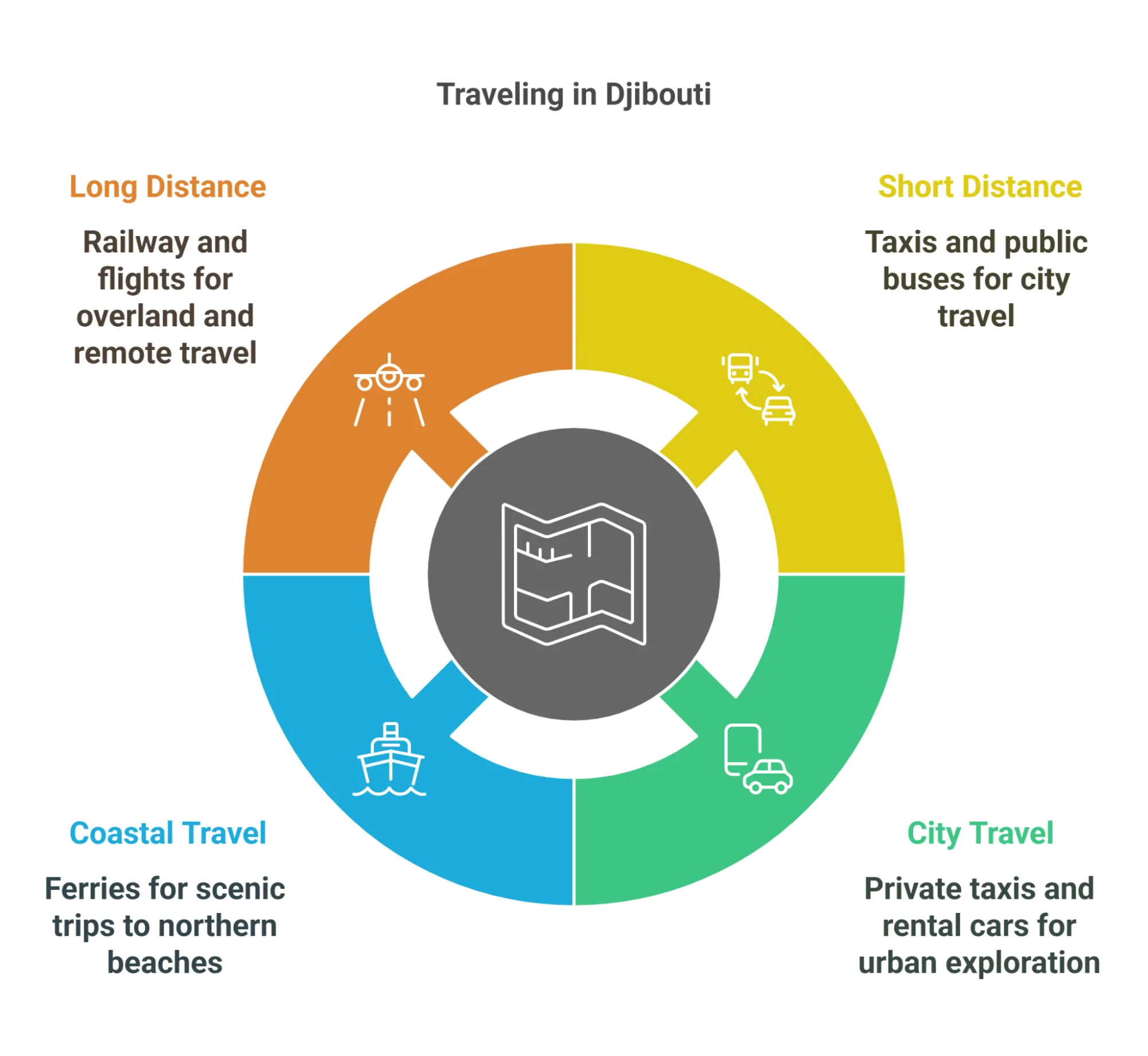
Djibouti, a small yet strategically significant country in the Horn of Africa, offers a unique blend of modern infrastructure and traditional landscapes. Whether you're visiting for business, tourism, or adventure, understanding the transportation system will help you navigate the country with ease. Despite its small size, Djibouti has varied transport options, ranging from taxis and buses in urban areas to rental cars and domestic flights for exploring remote regions.
Djibouti requires most travelers to obtain a visa before entry, and the Djibouti eVisa system provides a convenient way to apply online. This electronic visa allows tourists and business visitors to secure travel authorization without visiting an embassy, streamlining the process.
The Djibouti eVisa is available in different types, including tourist eVisa, business eVisa, and Transit eVisa, each catering to different travel needs. Processing typically takes 3–5 business days, and applicants must provide a valid passport, a recent photo, and supporting travel documents.
By securing your eVisa before departure, you can avoid delays and ensure a smooth arrival in Djibouti. The online Djibouti eVisa Application Form is straightforward, requiring just a few steps to complete.
Djibouti has several modes of transportation that cater to different budgets and travel preferences. Below are the main ways to get around the country:

🚖 Taxis are the most popular and commonly used mode of transportation in Djibouti City and other major urban areas, offering a convenient way to get around.
✔ Shared Taxis
🚗 These are the most affordable and frequently used option, where passengers share the ride with others. Prices are negotiable, particularly for short distances, making them an economical choice for budget-conscious travelers. Shared taxis operate mainly within Djibouti City, as well as other cities like Tadjoura and Ali Sabieh, serving as a vital transportation link for both locals and visitors.
✔ Private Taxis
🚗 Private taxis provide a more comfortable and safer alternative but tend to be more expensive than shared taxis. Fares for private taxis vary based on distance, time of day, and the specific route, so it's important to confirm the fare beforehand. Private taxis are readily available at hotels, the airport, and major shopping areas, offering a more personalized travel experience.
📌 Tip:Always agree on the fare before starting your ride, as taxis in Djibouti do not use meters. This helps avoid misunderstandings and ensures a smooth journey.

🚙 Renting a car offers flexibility and independence, making it a great option for travelers who wish to explore Djibouti beyond the capital city at their own pace. This is especially ideal for those wishing to visit remote areas like Lake Assal or the Goda Mountains. ✔ Requirements for Renting a Car in Djibouti Include:
✔ Cost & Availability
Daily rental rates vary based on the type of vehicle you choose. Expect higher rates for premium or larger vehicles. For travelers planning to venture off-road, renting a 4x4 vehicle is highly recommended. These are suitable for exploring areas like the rough terrain around Lake Assal or the mountainous Goda region.
✔ Where to Rent a Car?
Major rental agencies are conveniently located at Djibouti–Ambouli International Airport and throughout Djibouti City. This makes it easy for tourists arriving by flight or from the city to find a rental car.
Recommended companies include global agencies like Hertz and Europcar, as well as local rental services that can offer a range of options for different budgets and travel needs.
📌 Tip:Traffic in Djibouti City can be hectic, and road conditions outside the urban areas are often rough, so always drive cautiously, especially in rural or remote areas.

🚌 Public buses are the most budget-friendly way to get around Djibouti City and some nearby towns. They are commonly used by locals and can be a good option for travelers looking for an economical way to explore the city.
Advantages of public buses in Djibouti:
Disadvantages:
✈ Djibouti has limited domestic flight options, mainly for reaching remote areas.
✔ Djibouti–Ambouli International Airport (JIB) is the main hub for domestic and international flights.
✔ Some private charter companies offer flights to Tadjoura, Obock, and other remote areas.
✔ Flights can be expensive, so they are not the most budget-friendly option.
📌 Tip:For travel between cities, consider road transport unless time is a major concern.

🚢 Ferries are an essential mode of transport for reaching Djibouti’s coastal towns and remote areas that are not easily accessible by road. They provide a scenic and relaxing way to travel while avoiding long, rough road trips. The main ferry routes connect Djibouti City with Tadjoura and Obock, both located on the northern coast of the Gulf of Tadjoura.
✔Djibouti to Tadjoura Ferry:
⏳ Travel time: Approximately 3–4 hours, depending on weather conditions.
⛵ Operates daily, making it the most reliable ferry service in the country.
🏝️ Tadjoura is a popular destination known for its beautiful beaches and proximity to the Goda Mountains.
✔ Djibouti to Obock Ferry:
⏳ Travel time: Approximately 4–5 hours, as the distance is greater than the Tadjoura route.
⛵ Operates a few times a week, so travelers should check schedules in advance.
🌊 Obock is a key transit point for travelers heading to the nearby Moucha and Maskali Islands.
📌 Tip:Ferry services can sometimes be delayed due to weather conditions, so it’s best to check schedules in advance and arrive early to secure a seat. Bring water and snacks for the journey, as onboard facilities may be limited.

🚂 The Djibouti–Ethiopia railway provides a direct and efficient connection between Djibouti City and Addis Ababa, Ethiopia’s capital. This modern railway is a key transport link for both passengers and cargo, offering a faster and more comfortable alternative to road travel.
✔ Key Features:
Advantages of Train Travel in Djibouti:
📌 Tip:Train tickets sell out quickly due to high demand, so it’s best to book in advance. Arrive early at the station to complete security and boarding procedures smoothly.
Djibouti offers various transportation options, from taxis and buses to ferries and trains, making it easy to explore the country. Choosing the best mode of travel depends on your budget, destination, and comfort preferences.
🔹 For Short Distances: Taxis are the most common and convenient way to travel within cities. Public buses are an option for budget travelers, but they can be crowded and have irregular schedules.
🔹 For City Travel: Private taxis provide a more comfortable and safer option, especially for tourists. Renting a car is ideal for those who prefer independence and plan to explore areas beyond the city.
🔹 For Coastal Travel: Ferries offer an affordable and scenic way to travel between Djibouti City, Tadjoura, and Obock. This is a great option for those heading to the northern beaches and diving spots.
🔹 For Long Distances: The Djibouti–Ethiopia railway is the best option for overland travel to Addis Ababa, offering comfort and speed. Domestic flights are available for reaching remote areas or international connections.

Here are some tips about transportation in Djibouti travelers should keep in their mind
Content Disclaimer: While this information was last updated in January 2026, we strongly suggest confirming all travel details with the appropriate governmental agencies, embassies, and airlines.
Step1: Complete the online application form with your personal details and passport information.
Step2: Proceed to securely pay online using your credit card.
Step3: Check your email for payment confirmation and receipt of your Djibouti eVisa, which will be sent electronically.